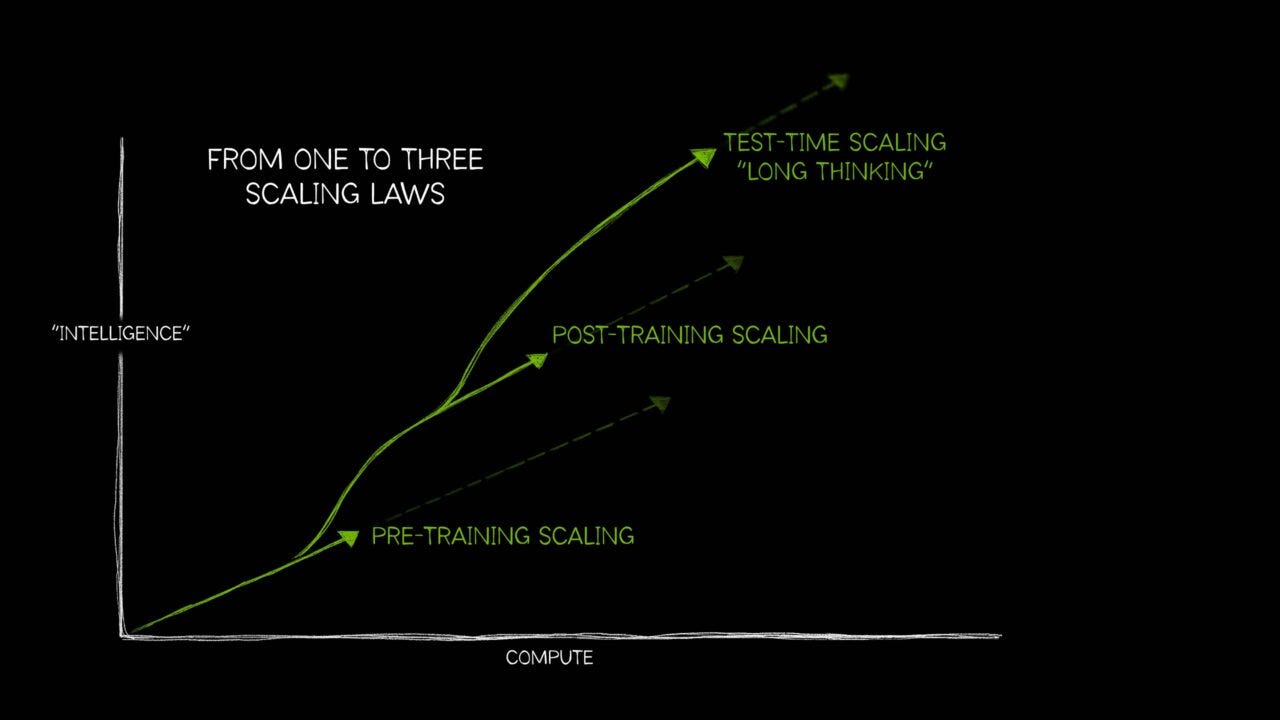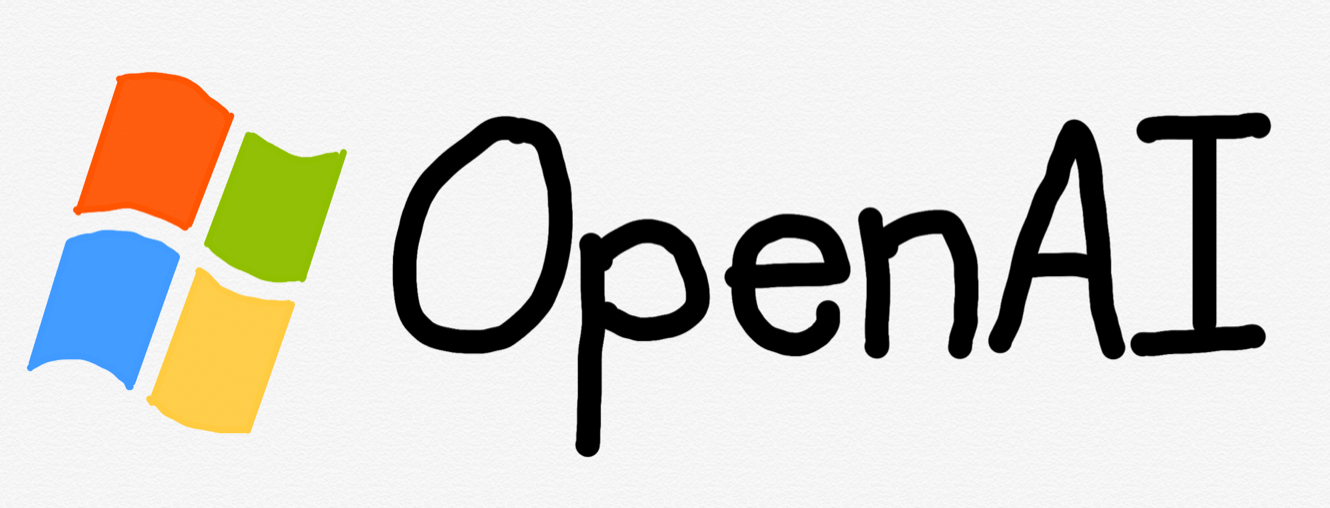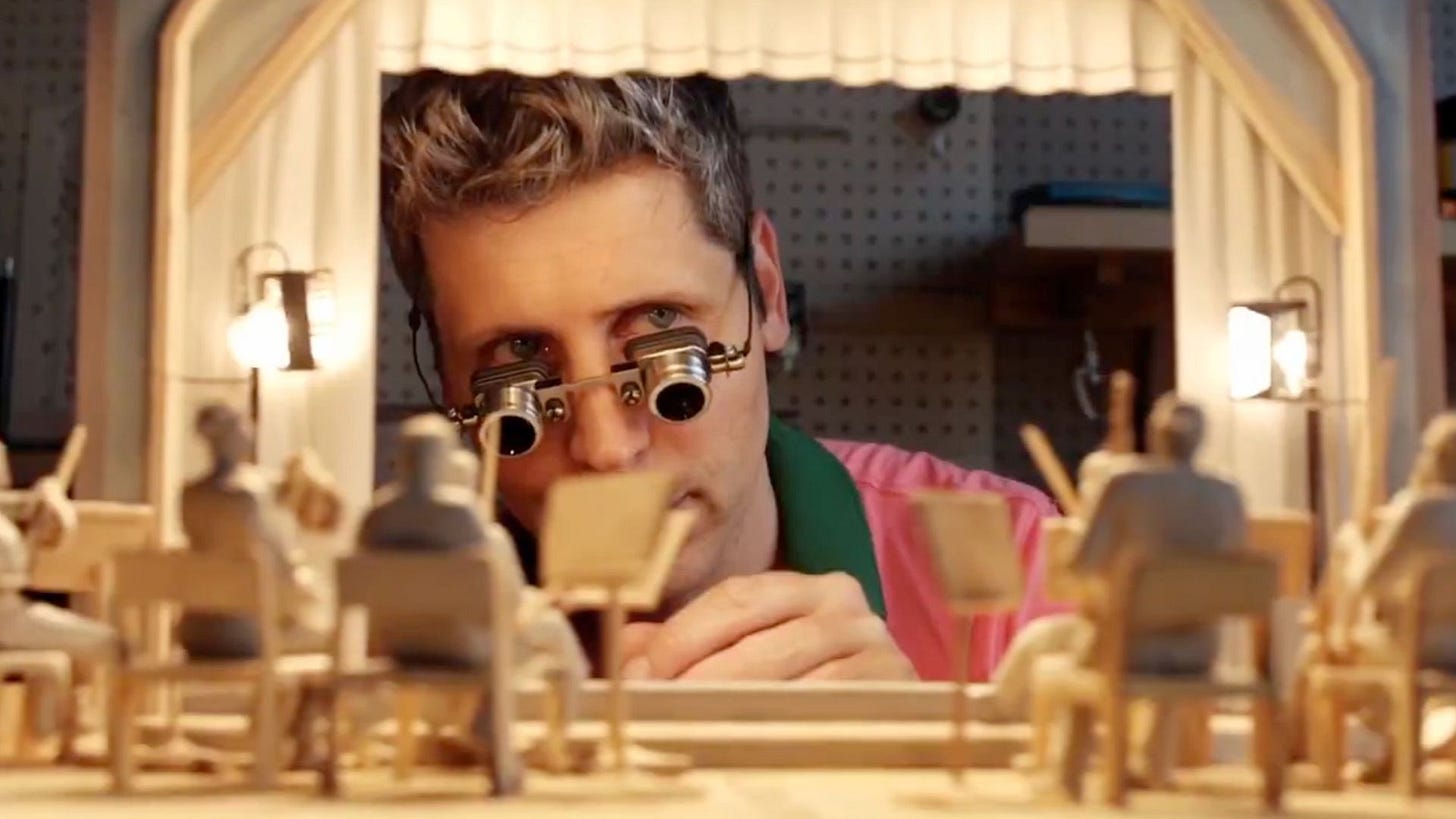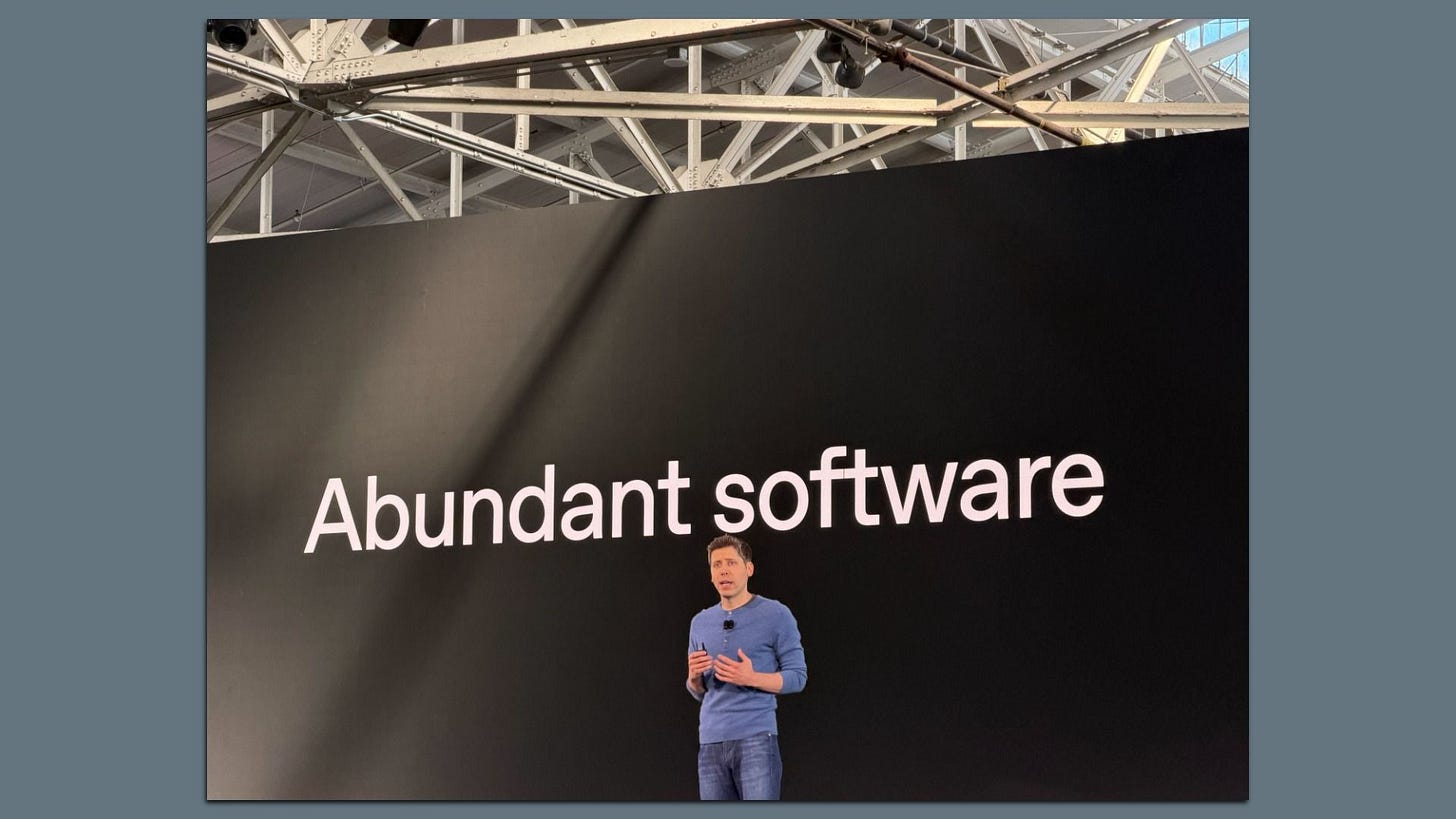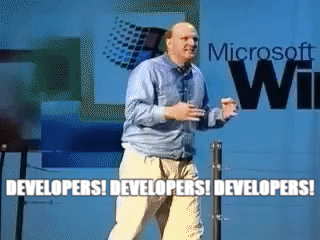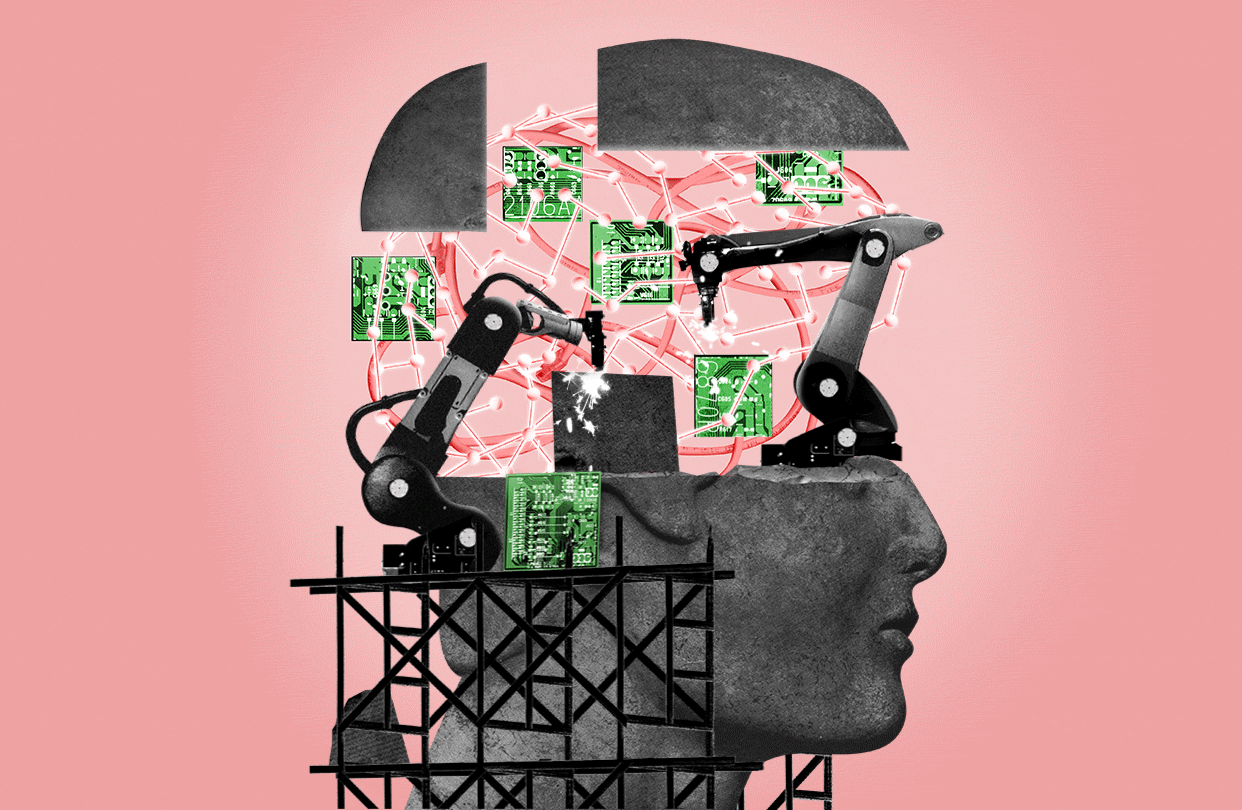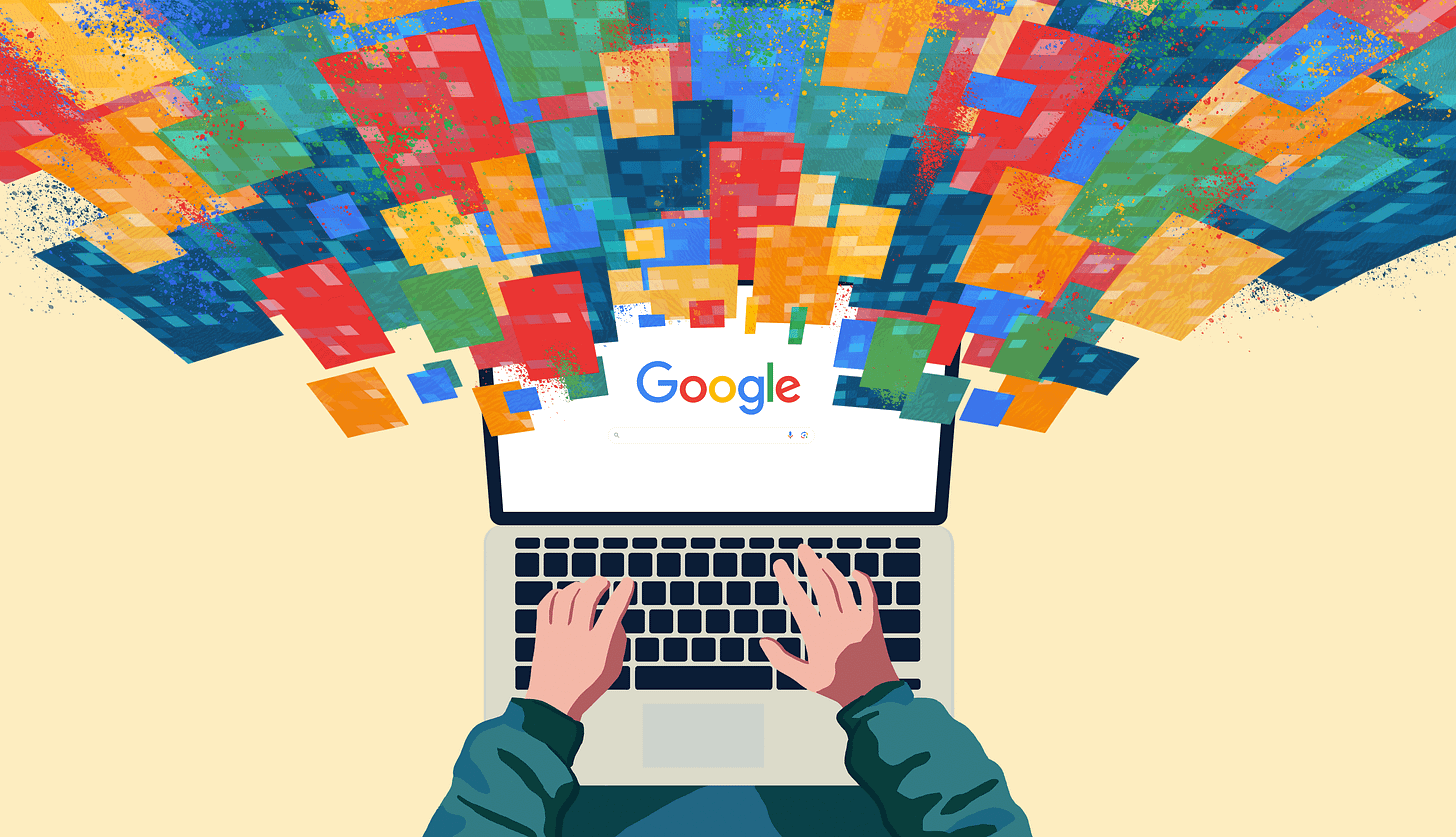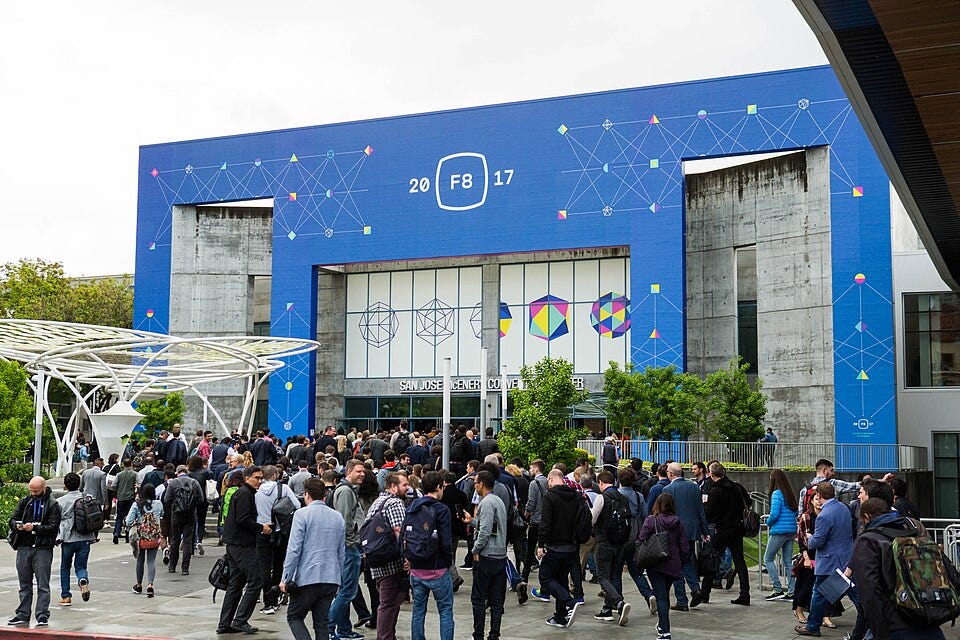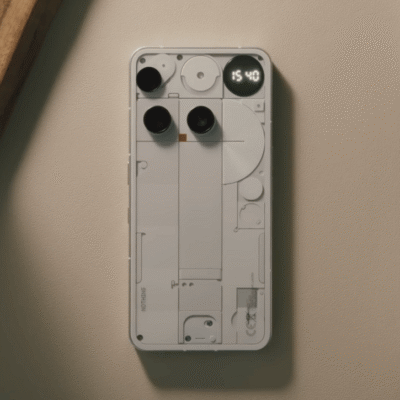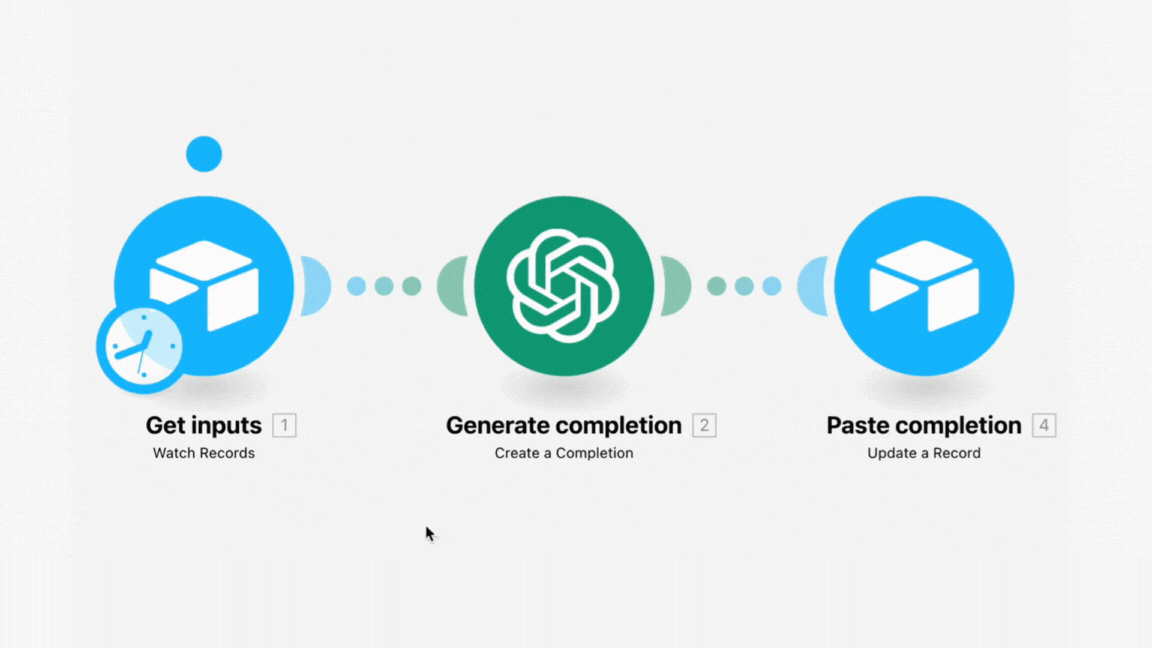
AI: OpenAI Dev Day 2025 evokes AI Operating System ambitions. RTZ #868
OpenAI held its annual DevDay 2025 yesterday, and showed its broader ambition of being an ‘operating system’ type of AI platform in these earky days of the AI Tech Wave. Beyond its erstwhile AI partner Microsoft itself.
Only a 1,042 days since November 30, 2022, the launch of its iconic GPT LLM AI driven ChatGPT. The latest official number of global users is over 800 million weekly humans.
Of a population of over 8 billion. Compared to 2-3.5 billion daily users of its ‘Mag 7’ peers like Google, Apple, Meta and others. Most of them expending hundreds of billions to Scale AI.
And being almost as aggressively loud about their AI Data Center and Power ambitions as OpenAI founder/CEO Sam Altman.
But even with all that context and background, the pace at which OpenAI has been executing under its new ‘CEO of Applications’ just the last few weeks is indeed breathtaking.
Much of it has been recorded here in its ‘Keep Them Coming’ pace at AI: RTZ, but it’s useful to see this list from Stratechery:
“OpenAI’s flood of announcements are getting hard to keep up with. A selection — not exhaustive! — from just the last month:”
“A massive data center buildout in partnership with Oracle”
“A $100 billion investment from Nvidia and associated deal to acquire 10 GW worth of Nvidia chips”
“A new Instant Checkout offering for the long tail of e-commerce”
“A partnership with Samsung and SK hynix for memory for AI chips”
“The Sora 2 video generation model and Sora the app”
“A deal with AMD for 6 GW worth of AMD chips and an associated OpenAI stake in the chipmaker”
“A slew of DevDay announcements, including apps in ChatGPT, AgentKit, Sora 2 and GPT-5 Pro in the API, the GA release of Codex, and more.”
“The last two announcements just dropped yesterday, and actually bring clarity and coherence to the entire list. In short, OpenAI is making a play to be the Windows of AI.”
This operating system analogy was echoed by Axios in “OpenAI’s push to make ChatGPT the new OS”:
“OpenAI isn’t just opening up ChatGPT for app developers. It’s looking to turn today’s leading chatbot into tomorrow’s operating system.”
“Why it matters: OpenAI — following a playbook honed by Apple, Google, Microsoft and Meta — aims to transform its product into a platform that developers can extend and users will rely on to meet more of their needs.”
“Driving the news: OpenAI on Monday announced its second effort to allow developers to build apps that run within ChatGPT.”
“Starting Monday, a handful of apps will appear in ChatGPT — including Spotify, Zillow, Figma, Canva and Booking.com — through a partnership with OpenAI.”
“Next, OpenAI will open ChatGPT to all app developers willing to follow the guidelines it detailed on Monday. The company said it will start reviewing and listing those apps “later this year.”
“OpenAI promised developers will be able to make money — somehow — but how that money will change hands remains murky.”
“I would expect us to try a lot of things over the next few months and then, hopefully, we’ll find what most of the market wants,” CEO Sam Altman told reporters.”
It’s not just the media and the analysts invoking the operating system analogy. OpenAI itself is invoking the comparisons:
“The big picture: ChatGPT head Nick Turley told Axios that OpenAI sees a chance to expand its popular chatbot into a core way people interact with their devices.”
“It’s not inconceivable to me that over time, you perceive ChatGPT to be a type of operating system,” Turley said in an interview.”
“Now, literally speaking, it’s obviously running on something; it’s not a real OS in that sense,” he said.
Turley suggested that ChatGPT will be both an “access point to get into other pieces of software” and a place for developers to innovate. “So, in that sense, it’s very much becoming an operating system.”
And all this is before OpenAI even launches its own AI Browser, something I’ve been talking about for a while here on these pages.
But for now, the company is focused on Developers, Developers, Developers. Just like Microsoft was in its day.
“Flashback: This isn’t OpenAI’s first time opening up ChatGPT to developers.”
“OpenAI launched custom GPTs and its ChatGPT store at its first developer event in 2023.”
“There was an initial wave of interest in the store, but it largely became a tool for companies to build their own apps for internal use, with no clear way for developers to make money.”
And the aspirations are far beyond chatbots. It’s just a means to a far bigger end:
“Between the lines: OpenAI’s effort to turn ChatGPT into a platform doesn’t mean it expects users to do everything through a conversational chat interface, Turley said during a question-and-answer session with reporters earlier in the day.”
“Not all software needs to be a chatbot,” Turley said in response to a question from Axios. “Not all interaction with the commercial world needs to be a chatbot.”
“ChatGPT, Turley said, wasn’t even meant to be OpenAI’s big bet. “We never meant to build a chatbot,” he said. “We meant to build a super assistant and we got a little sidetracked.”
“Turley said that spending all your time in a chatbot would be a dystopian future, but he sees a path to broadening the experience.”
““If we can evolve ChatGPT the right way, if we can let people build into it, then maybe you will be spending a lot of time in ChatGPT, the sort of operating system,” Turley told Axios in a follow-up interview. “But it won’t feel like you’re in a chatbot.”
To be sure, OpenAI is not the only one with the AI operating system ambitions:
“Yes, but: OpenAI is far from alone in wanting to be the next platform.”
“Google, Microsoft and Apple, whose operating systems power the vast majority of phones and computers, are keen to extend those positions into the AI era.”
“Meanwhile, the tech giants who missed out on the mobile revolution — Meta and Amazon — also aim to position themselves at the center of whatever comes after the phone.”
“And then there are countless startups who themselves dream of being the next tech giant.”
And the way to all that Applications goodness is going to be through a lot more AI software and hardware. Particularly AI devices, as I’ve written about at length in recent days.
“The intrigue: Just what hardware we’ll be using in a few years’ time also remains unsettled. PCs and phones probably won’t be going away, but they are likely to be complemented by new devices, including smart glasses.”
“OpenAI is developing a “family of devices” and earlier this year paid $5 billion in stock to acquire io, the Jony Ive-led hardware startup Altman had been working with.”
“Altman and Ive appeared on stage to close Monday’s event, but in 45 minutes they dropped nary a hint at the hardware they’re cooking up together.”
So just like Facebook/Meta at its famous F8 Developer conference starting in 2007, OpenAI is planting an ambitious flag to announce its platform aspirations to the world’s developers. And of course like many other tech companies before and since.
But these are the earliest of days in this AI Tech Wave. And most of today’s players have internalized most of the easy and hard lessons from the tech waves before. Companies and investors alike.
So the probability of eventual success to being an ‘AI operating system’ are just as daunting now for OpenAI, as they were a 1042 days ago at the dawn of its ‘ChatGPT moment’. But they’re looking good right now. Stay tuned.
(NOTE: The discussions here are for information purposes only, and not meant as investment advice at any time. Thanks for joining us here)

